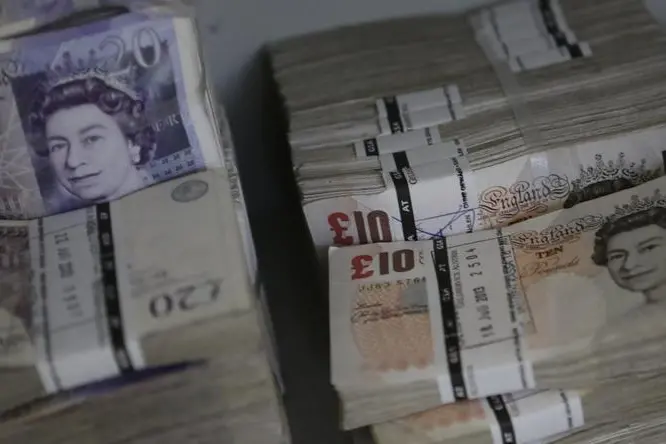PHOTO
The dollar hit three-month highs against the yen on Tuesday as the loss of a parliamentary majority for Japan's ruling coalition in weekend elections muddied the political and monetary picture, while sterling was firm ahead of a new British budget.
The Chinese yuan, which touched its weakest level against the dollar since mid-August, showed little reaction to the possibility Beijing may issue over $1.4 trillion in new debt as part of a series of measures to shore up the economy.
The dollar is heading for its largest monthly rise against a basket of major currencies in 2-1/2 years, and holding near three-month highs, ahead of a slew of U.S. employment and inflation data this week that could determine the path for Federal Reserve policy.
Recent data have highlighted the resilience of the U.S. economy, which, together with mounting market bets of a win by Republican candidate Donald Trump in next week's U.S. presidential election, have underpinned the dollar and pushed up Treasury yields.
"It's still my view that the FX market is only really thinking of one trade at the moment, which is a strong dollar," XTB research director Kathleen Brooks said.
The dollar index has risen 3.6% so far in October, marking its best monthly performance since April 2022. It is up this year against every major currency except the pound.
This week's data slate includes the September U.S. core personal consumption expenditures price index - the Fed's preferred measure of inflation - on Thursday, as well as a flurry of jobs reports.
With the dollar looking unlikely to budge much from its recent highs, other currencies came under pressure, most notably the yen, which has fallen to its lowest since July after Japan's election on Sunday left the make-up of the future government in flux.
"All up, the risks appear skewed to looser fiscal policy than otherwise under the new government," said Carol Kong, a currency strategist at Commonwealth Bank of Australia.
"Heightened financial market volatility might also encourage the Bank of Japan to keep its policy interest rate unchanged for longer than we currently expect."
The yen has lost nearly 10% in value since September's 14-month high against the dollar. The dollar meanwhile, was last up 0.1% on the day at 153.415.
The BOJ announces its monetary policy decision on Thursday, and is widely expected to leave rates unchanged.
COUNTDOWN TO BUDGET
In Europe, the pound edged up 0.1% to $1.2983, a day before the Labour government's first budget.
Finance minister Rachel Reeves, along with Prime Minister Keir Starmer, has reiterated the need for tough fiscal measures to help close a hole in British public finances, all while seeking to retain the confidence of investors, two years after then-Prime Minister Liz Truss' tax-cutting plans sparked a crisis in the bond market.
Key for sterling will be estimates from the British Office for Budget Responsibility, which makes the forecasts that underpin the government's spending and tax plans.
"The fact that cable is hanging around at the $1.30 level is a sign that the markets are ready to go after tomorrow," XTB's Brooks said.
"As long as growth is significantly revised up in the longer term, at the same time that debt levels are falling... as long as those two things are good, we could jump back above $1.30."
The euro dipped 0.1% to $1.08 against the dollar and was down 0.2% against sterling at 83.19 pence.
China's yuan weakened to its lowest level in over two months. Two sources with knowledge of the matter told Reuters China's top legislative body, the Standing Committee of the National People's Congress, is looking to approve a new fiscal package, including 6 trillion yuan which would partly be raised via special sovereign bonds, on the last day of a meeting to be held from Nov. 4-8.
The yuan weakened by as much as 0.26% to 7.165 in the offshore market, while its onshore counterpart bottomed at 7.1419 per dollar.
(Additional reporting by Rae Wee in Singapore; Editing by Shri Navaratnam and Christina Fincher)





















